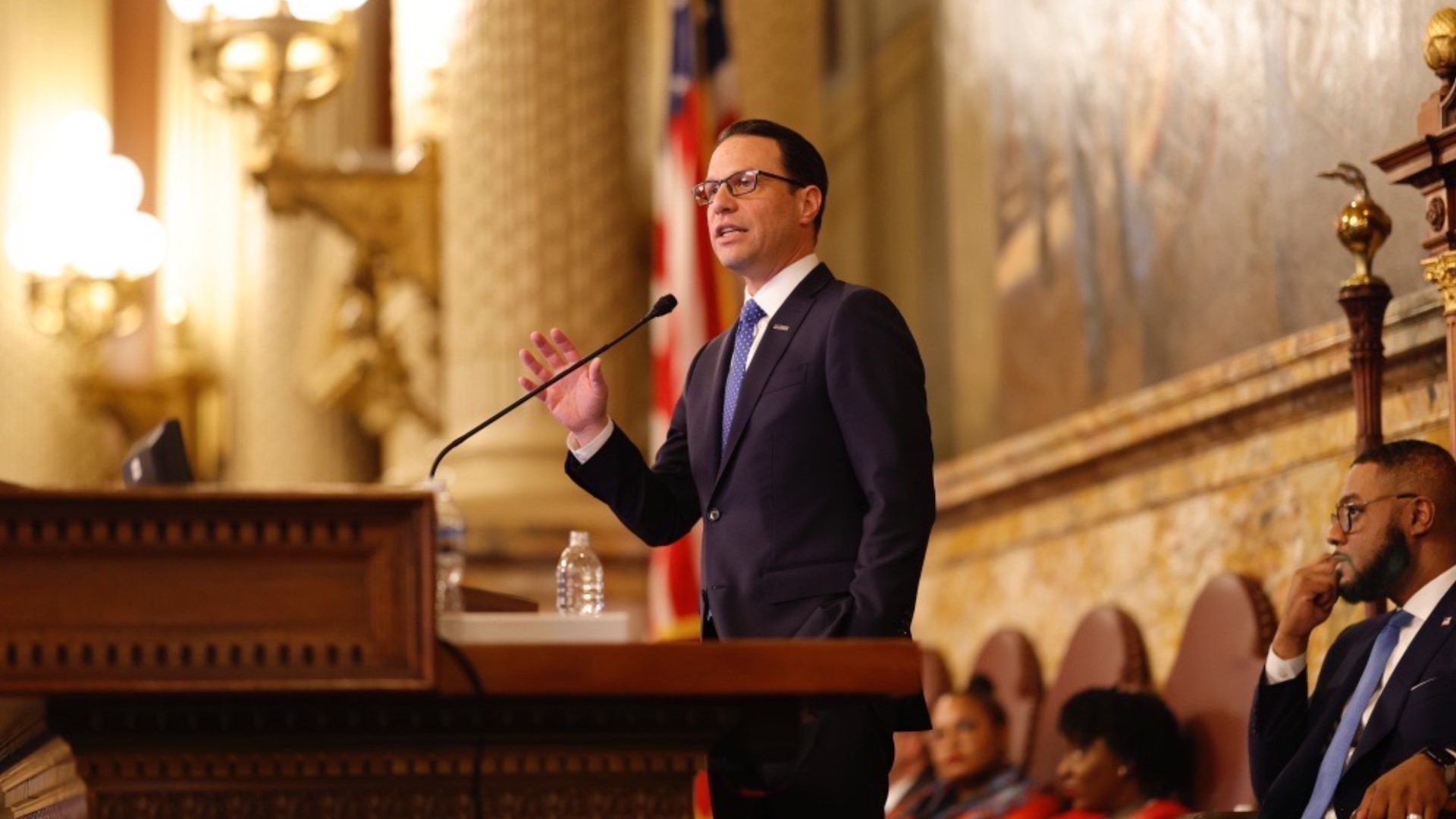HARRISBURG, Pa. — Gov. Shapiro gave his first budget address as governor Tuesday, revealing largely bipartisan priorities like education and fiscal responsibility.
Shapiro headed into his first budget negotiations well-positioned to ask for more spending. The state has a $6.7 billion surplus in its general fund and $5 billion in the Rainy Day Fund.
The proposed budget would use some of those funds to cover a total budget increase of $1.56 billion, or 3.6%.
“We are prepared to weather a storm should it come. We can also afford to make critical investments for the good people of Pennsylvania right now,” Shapiro said in his address.
The budget would put a large chunk of those investments into education, ranging from pre-K to college and tech school.
The Wolf administration ended its final budget last year with a historic $1.8 billion increase in education funding. Shapiro’s budget would increase last year’s level by $914.6 million.
In a press conference following the budget address, Republicans said they did not want to dip into the Rainy Day Fund at all, and in any case, more funding isn’t the answer to improve education.
“This isn’t about just throwing more money into a system that may not still be getting the same results in many different areas or consistently have failing schools.,” said State Sen. Scott Martin (R-Lancaster).
Democrats in both the House and Senate had called for significantly larger investments in education. Senate Democrats proposed a $3.1 billion “down payment” on schools. In a press conference following the address, though, they acknowledged Shapiro’s proposal was more realistic.
“Would we like a greater investment in some areas? Certainly,” said State Sen. Sharif Street (D-Phila.). “But recognizing that we have a divided government, I think the governor is moving toward a budget that is responsive to the needs of all Pennsylvanians and can actually pass.”
Shapiro did not propose a specific solution to make school funding more equitable, after the state Supreme Court recently ruled that Pennsylvania’s school funding structure is unconstitutional. A plan, he said, would require patience and cooperation.
“This is not a simple task,” Shapiro said. “It’s not something that any one branch of this government can do alone, and let’s be honest, it cannot be fixed overnight.”
The budget is also a chance for the new governor to turn campaign promises into funded policies. Shapiro called to raise the minimum wage to $15, as he had called for during his campaign. He also directed government agencies to process licenses and permits faster and more transparently.
Though he mentioned the need to lower the state’s net income tax rate, Shapiro did not bring up his call during the campaign to accelerate the tax rate reduction. Pennsylvania already passed a slow reduction from 9.99% to 4.99% over a nine-year period. Shapiro had previously called to bring the tax down to 4% by 2025.
The budget would create a separate fund for Pennsylvania State Police, which currently relies on funds meant for infrastructure. Shapiro’s plan would wean PSP off the Motor License Fund by $100 million a year. It would create a separate fund for PSP, which would be funded through the general budget.
The plan also calls for the state to continue funding federal programs that are ending this year, like universal free breakfast for kids at school.
Lawmakers from both parties complimented the governor on a budget address that appealed to common goals and sought compromise over partisan priorities. That bodes well for the negotiation process ahead, when the budget needs to pass through a Democratic-majority House and Republican-majority Senate.
A final budget must be signed by July 1.

